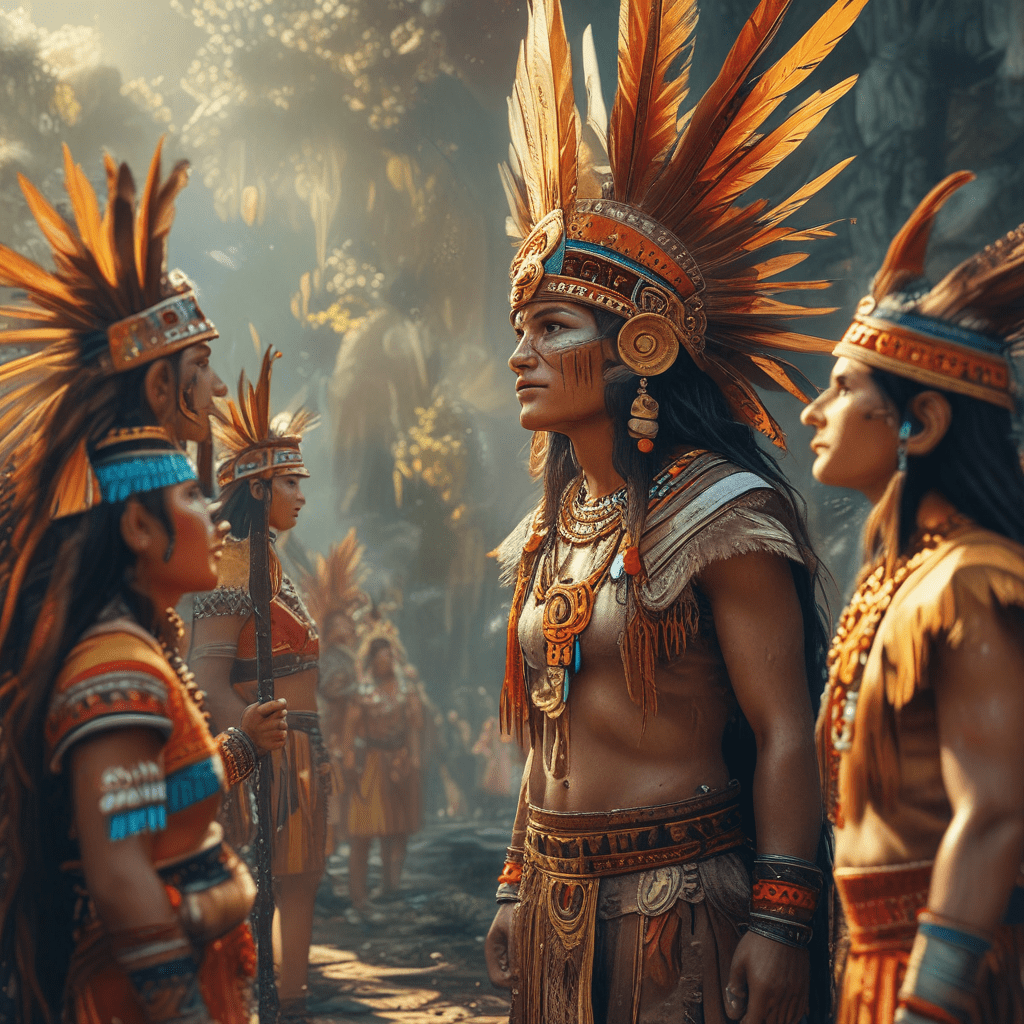The Mountain of the Phoenix: Myths of Rebirth and Renewal
I. Introduction to the Mountain of the Phoenix
The Mountain of the Phoenix represents a powerful symbol in various mythologies, embodying themes of rebirth and renewal. This mythical mountain serves as a backdrop for the legendary Phoenix, a creature renowned for its ability to rise from the ashes of its own demise. The significance of the Mountain of the Phoenix extends beyond mere folklore; it encapsulates profound spiritual truths that resonate across cultures.
Across different mythological traditions, rebirth and renewal are recurrent themes, often symbolizing hope, transformation, and the cyclical nature of life. The purpose of this article is to explore the rich tapestry of the Mountain of the Phoenix, examining its historical roots, symbolism, and enduring relevance in contemporary spirituality.
II. Historical Context of the Phoenix Myth
A. Origins of the Phoenix myth in ancient cultures
The Phoenix myth can be traced back to ancient civilizations, where it emerged as a potent symbol of immortality and resurrection. The earliest records of the Phoenix appear in Egyptian mythology, where it was associated with the sun god Ra.
B. Comparative analysis of the Phoenix in Egyptian, Greek, and Chinese mythology
- Egyptian Mythology: In this tradition, the Phoenix is known as the Bennu bird, linked to the cycles of the sun and the flooding of the Nile.
- Greek Mythology: The Greeks adopted the Phoenix as a symbol of regeneration, often depicting it as a fiery bird that rises from its own ashes.
- Chinese Mythology: The Fenghuang, often referred to as the Chinese Phoenix, embodies virtue and grace, representing balance and harmony.
C. The evolution of the Phoenix myth through the ages
As cultures evolved, so too did the interpretations of the Phoenix myth. The symbolism of the Phoenix has been adapted in various ways, reflecting changes in societal values and beliefs about life, death, and transformation.
III. Symbolism of the Mountain in Mythology
A. The mountain as a sacred space in various cultures
Mountains have long been regarded as sacred spaces across many cultures. They are often seen as dwelling places of the gods or as gateways to the divine. The Mountain of the Phoenix serves as a spiritual nexus where the earthly meets the celestial.
B. The relationship between mountains and spiritual journeys
In numerous myths, mountains symbolize the arduous journey of self-discovery and enlightenment. Climbing a mountain often represents overcoming obstacles and striving for higher understanding.
C. The symbolism of ascent and descent in the context of renewal
The act of ascending a mountain can signify personal growth and transformation, while descending may represent the necessary shedding of old identities. Together, these actions encapsulate the cycle of renewal embodied by the Phoenix.
IV. The Phoenix as a Symbol of Rebirth
A. Characteristics and attributes of the Phoenix
The Phoenix is typically depicted as a majestic bird with vibrant plumage, often associated with fire and the sun. Its attributes include immortality, resilience, and a profound connection to the cycles of nature.
B. The lifecycle of the Phoenix: death, transformation, and rebirth
The lifecycle of the Phoenix is characterized by three pivotal stages:
- Death: The Phoenix reaches the end of its life, often consumed by flames.
- Transformation: From the ashes, a new Phoenix emerges, symbolizing transformation and renewal.
- Rebirth: The new Phoenix rises, embodying hope and the promise of new beginnings.
C. The universal appeal of the Phoenix as a symbol of hope
The Phoenix resonates deeply with people across cultures, offering a powerful message of hope and resilience in the face of adversity. Its story inspires countless individuals to embrace their own paths of transformation and renewal.
V. The Role of Fire in the Myth of the Phoenix
A. Symbolism of fire in different mythological traditions
Fire holds a significant place in many mythological traditions, often symbolizing destruction, purification, and transformation. In the context of the Phoenix, fire serves as both a source of demise and a catalyst for rebirth.
B. The concept of purification through fire
The act of burning is frequently seen as a means of purification, clearing away the old to make way for the new. This theme is prevalent in various cultures, where fire is used in rituals to signify cleansing and renewal.
C. Fire as a catalyst for change and renewal
In the myth of the Phoenix, fire ignites the transformation process. It represents the challenges and trials that lead to personal growth, reminding us that through adversity, we can emerge stronger and more enlightened.
VI. Cultural Representations of the Mountain of the Phoenix
A. Artistic interpretations in literature, art, and film
The Mountain of the Phoenix has inspired countless artists, writers, and filmmakers throughout history. Its themes of rebirth and renewal are frequently explored in various forms of creative expression.
B. The Mountain of the Phoenix in folklore and oral traditions
Folklore surrounding the Mountain of the Phoenix often emphasizes the journey of the hero, who must navigate the challenges of the mountain to achieve enlightenment or transformation.
C. Modern adaptations and the continuing relevance of the myth
The myth of the Mountain of the Phoenix continues to be relevant today, appearing in contemporary literature, art, and popular culture as a symbol of resilience and hope in the face of life’s challenges.
VII. Psychological Interpretations of Rebirth and Renewal
A. The Phoenix myth in psychology and personal growth
The Phoenix myth has been embraced by psychologists as a metaphor for personal growth and transformation. It illustrates the human journey of facing challenges, experiencing loss, and ultimately emerging renewed.
B. Archetypes of transformation and renewal in the human experience
The Phoenix serves as a powerful archetype in the collective unconscious, representing the innate human desire for renewal and the ability to rise above adversity.
C. The impact of myth on individual and collective consciousness
Myths like that of the Phoenix shape our understanding of ourselves and our place in the world. They provide frameworks for interpreting personal experiences and inspire collective narratives of resilience and rebirth.
VIII. The Mountain of the Phoenix in Contemporary Spirituality
A. New Age interpretations of the Phoenix myth
In contemporary spirituality, the Phoenix myth has been embraced by New Age practitioners as a symbol of transformation and spiritual awakening. It is often invoked in practices aimed at personal growth and healing.
B. Practices of renewal: rituals and meditations inspired by the Phoenix
Many spiritual practices draw on the symbolism of the Phoenix, incorporating rituals and meditations that emphasize letting go of the past and embracing new beginnings.
C. The Mountain of the Phoenix as a metaphor in personal development
The Mountain of the Phoenix serves as a powerful metaphor for personal development, encouraging individuals to embark on their own journeys of self-discovery and transformation.
IX. Challenges and Critiques of the Myth
A. Debates over the interpretation of the Phoenix myth
While the Phoenix myth is celebrated for its themes of rebirth, there are ongoing debates about its interpretation and relevance in modern contexts. Scholars and practitioners often engage in discussions about the meanings and implications of the myth.
B. Cultural appropriation and the use of myth in modern contexts
As the Phoenix myth has been adopted in various cultures, concerns arise regarding cultural appropriation and the ethical use of mythological symbols in contemporary practices.
C. The balance between myth and reality in personal narratives of rebirth
In navigating personal narratives of rebirth, individuals must find a balance between the mythic ideal of the Phoenix and the complexities of real-life experiences, acknowledging both the struggles and triumphs of transformation.
X. Conclusion: The Enduring Legacy of the Mountain of the Phoenix
The Mountain of the Phoenix remains a potent symbol of rebirth and renewal, transcending cultural boundaries and continuing to inspire individuals on their journeys of transformation. Its rich history and multifaceted symbolism serve as a reminder of the resilience of the human spirit and the possibility of new beginnings, no matter the circumstances. As we reflect on the myth of the Phoenix, we are encouraged to embrace our own paths of renewal, rising from the ashes of our past to soar to new heights.



